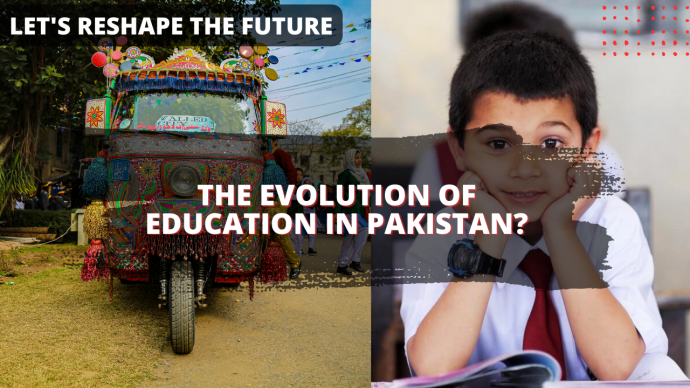
Embracing a Future-Oriented Education System in Pakistan
Introduction
As I have mentioned many times in my previous blogs that education is a very important cornerstone of progress for any country or nation as it shapes up the destiny of both nations and individuals alike. In this rapidly evolving world where technology become obsolete quickly, newer forms of various things are being added almost daily, the need to develop a future oriented education system is extremely important and in fact is imperative in the modern times. The youth needs to be well prepared for the challenges and opportunities that they could possibly face in the days to come. It is the need of the time to make this paradigm shift in the education landscape now.
Pakistan stands at a crucial point where the education system needs to be reimagined so that innovation is fostered, critical thinking is developed and students become more adaptable towards their surroundings and problems that they could face. Embracing a future oriented approach could involves adding a number of features to the present education system so that a brighter tomorrow can be developed.
Emphasizing Critical Thinking and Problem Solving
One of the major facets that needs to be developed in the modern future oriented education system is to develop a system that involves complexity, critical thinking and solving problems creatively. It is the need of the hour that students do not focus on rote learning anymore and they do more experiential and project based learning methodologies. Students should be encouraged to critically analyze the topics under study, question the theory to find solutions and innovate. This would help foster a mindset that is crucial for success in this ever changing world.
Integrating Technology in Learning
Technology is thought to be an indispensable tool in this modern world. When technology is integrated and introduced within the education framework, it not only enhances student learning but it also empowers students to enable them to acquire digital literacy and harness the power of information. Therefore, access to the computers, internet and the digital resources should be available across various education institutions.
Focus on Skill Development
Beyond achieving top grades, it’s critical to give pupils real-world experience. The curriculum should incorporate instruction in soft skills development, entrepreneurship, and vocational training. This increases the youth’s employability in a competitive work market and prepares them for a variety of professional possibilities.
Cultivating Creativity and Innovation
Progress is fueled by innovation. A culture of innovation is fostered by promoting creativity in the arts, sciences, and extracurricular activities. Within the educational ecosystem, programs that encourage research, design thinking, and entrepreneurial endeavors ought to be encouraged and supported.
Professional Development for Educators
Teachers are essential in influencing the future. It is recommended that educators participate in ongoing professional development programs to acquire contemporary teaching approaches, technology integration abilities, and techniques for fostering the holistic development of their pupils.
There will be difficulties in Pakistan when the educational system shifts to one that is focused on the future. It calls for coordinated efforts from the community at large, educators, parents, teachers, and educational institutions. To facilitate this transition, adequate financing, the construction of infrastructure, and legislative changes are essential.
Conclusion
In conclusion, Pakistan needs a future-focused educational system; it is not an option. Through the adoption of innovation, technology, critical thinking, and inclusivity, Pakistan may enable its youth to act as agents of positive change, propelling the country toward wealth and advancement in the coming years.

Content writer, educationist, teacher, researcher, social media manager, and a SEO manager from lahore. She has been working as a freelance academic and non-academic writer for more than 20 years now. She has a passion to learn new things and has a knack for writing and she combines both things to produce write ups she pours her heart out in.

